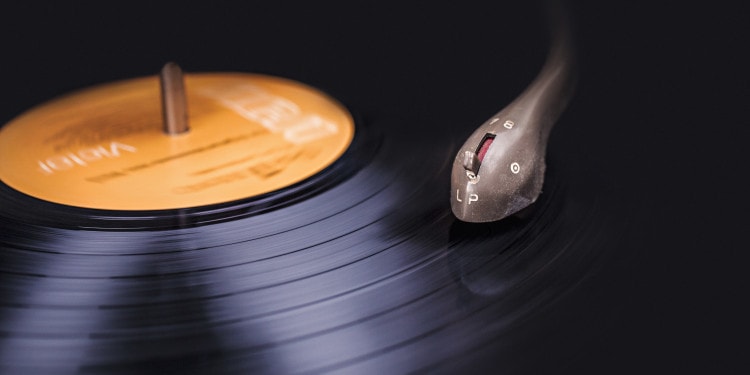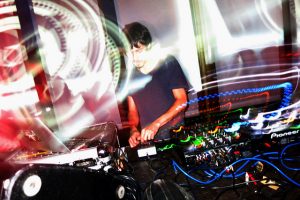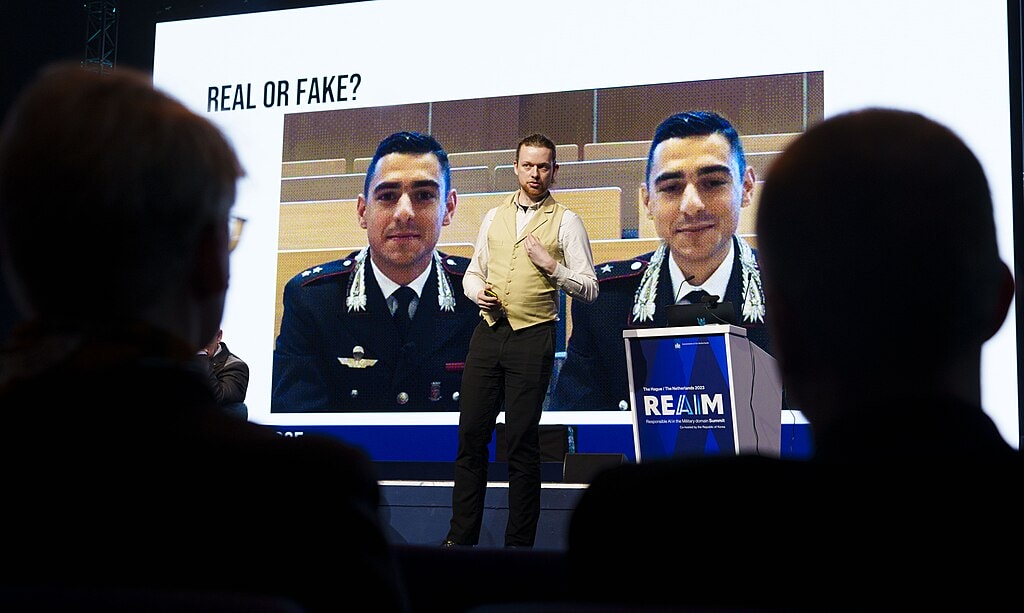Great artists are usually exceptional at listening and quietly observing the small bits of life that ordinary people let slip through the cracks.
 Paul Cantor has put together a career spanning music production, management, music journalism, editing, and blogging. Among others, he has written for the likes of Rolling Stone and Billboard. He maintains a blog and his Twitter. With experience across the creative industries and an outspoken online presence, we interviewed Paul to try and get a look at what, for him, lies behind the drive to create.
Paul Cantor has put together a career spanning music production, management, music journalism, editing, and blogging. Among others, he has written for the likes of Rolling Stone and Billboard. He maintains a blog and his Twitter. With experience across the creative industries and an outspoken online presence, we interviewed Paul to try and get a look at what, for him, lies behind the drive to create.
Could you shed a little light on the different sides to your musical life? As someone working both on the business side, as a writer and producer, and as a consumer of music, how do these different facets interact with each other – does your industry experience influence your output as a composer, does composition serve as an outlet from day-to-day business?
Paul Cantor: I was raised to have a deep appreciation for music, and all aspects of creative life, generally. Through my parents, I was exposed to avant garde jazz, art house films, a lot of fringe underground literature and offbeat comics. But I was a kid, and was still into whatever kids were into as well — hip-hop, heavy metal, a little pop music. I say all that to express an idea — that the different sides of my musical life are all a part of one physical, mental and emotional state of being. These aren’t sides so much as they are just who I am. I am music. Anything one can reasonably do in music, I have probably done at some level or another.
I think the best way all of these aspects interact on a day to day basis is that they inform each other. When I’m interviewing people, I’m listening to their tone of voice, the rhythm they’re speaking in, cadence. And then, well, what are they saying? They could be saying something that belongs in a song; a turn of phrase, a clever wording. So I’m always looking for ideas. Writing and song composition, while not necessarily the same media, definitely go hand in hand. Both involve a lot of listening. Great artists are usually exceptional at listening and quietly observing the small bits of life that ordinary people let slip through the cracks.
How did you come to find your niche in the industry – your particular fortes, your personal style, the work you most like doing?
P.C.: It took me a lot of trial and error. Early in my career, I liked journalism but didn’t love it, because most of the stuff I was writing was forgettable garbage. I liked public relations work, but didn’t see the long-term upside in selling things I didn’t own. I liked producing, but then everything got a little formulaic and even that, with the same exact song written 100 slightly different ways, lost its appeal. I liked throwing concerts, but I would offer artists hundreds of thousands of dollars — more than enough for a half hour of work — and most would all tell me to go screw myself, so I gave that up. And I liked managing artists, but often found them lazy, entitled and not nearly as creative as they looked (a lot of artists wear the uniform, but don’t live the life); so I stopped doing that, too. I tried a lot of things and even if I didn’t continue doing them, I enjoyed them, learned what I liked, what I didn’t like.
writing is like the truest expression of the inner mind’s most intimate thoughts
My feeling is that people get into music because there’s a voice inside them that they can’t quiet, no matter how successful or how unsuccessful they end up being. I’ve always listened to that voice, so most of my career I’ve liked what I’m doing, because most of my career I’ve done exactly what I wanted to do. If I didn’t like it or didn’t see real value in it, I stopped. These days, I’m enjoying writing the most. As for why, I would like to say something idealistic here about how writing is like the truest expression of the inner mind’s most intimate thoughts, which it is, but I think it’s also that I’m finally at a level where I can just do whatever I want to do — and that’s some powerful stuff.
Who or what have been your major influences up till now? Is there a central theme or idea you build your work around? Do you know where you’ll be heading next?
P.C.: My biggest influence on my life and career is my father. I think in a different world, a different time, a different life, he would have probably done a lot of the things I’m doing. He’d have been a writer and a musician, maybe even an A&R guy or manager. He tried to work at Atlantic Records. He tried to work at the Village Voice. But he was a kid and maybe he wasn’t cool enough so authority figures told him, in other words, to get lost. I didn’t learn that information until I was already involved in music, but now I really do live with it every day in a lot of ways. So, I was destined for this.
Here’s One More Annoying Ass Article About “Straight Outta Compton”
As for themes, I always want to write the story nobody is telling, work with artists nobody is listening to and make music nobody is making. I tend to gravitate to and involve myself with things most people think are useless, thereby giving them value. Because it’s my belief that true artists and innovators aren’t in the scene or of the scene — they are the scene, they make the scene, they become the scene. If there’s a crowd, you’re already too late. Not sure where I’ll be headed next but like all modern-day writers, I pine to get into more writing for film and television, because that’s where a lot of the best writing is these days, and I have a strong desire to play in that world.
Related article: “ORIGINALITY IN THE AGE OF THE REMIX“
Composing music can be time-consuming and hard work. What is it that drives you to make music when there are so many other demands on your time? How do you maintain a balance between a career and a social life?
P.C.: What drives me the most is just a hunger for more. I’m 33-years-old but still have the pugnacity of an ambitious child who hasn’t done much with their life yet. I haven’t done much with my life yet anyway, really. So as for balance, I don’t even know what that is. I got into music and entertainment because I could never really see myself fitting in with everyday adult life. Like, nothing about normalcy has ever appealed to me that much. In fact, I’ve always found it kind of lame. But as I’ve matured, I’ve realized that being a functional grown-up helps me understand the world and all its people a lot better, which helps me create things. You have to be of this world to make things for it.
PHOTO CREDIT: Ryan Mcguire
How do you incorporate tech into your music? Is it part of the creative process itself, do you use it to perform?
P.C.: I moved apartments last year and said goodbye to 6 keyboards, and at least temporarily, a giant record collection. Truth is, I just didn’t need the stuff anymore. I use Ableton Live and it’s significantly more powerful than any piece of gear I own. I can go online and get a lot of my records digitally. Is it the same? No. But culturally we’ve spent the past ten years embroiled in a movement that supports decluttering and streamlined design. Nobody wants to own anything anymore. Apartments. Cars. Relationships. Thoughts. Ideologies. Everything is temporary. I’m resistant to it, but only to the point where it serves a real purpose. As a songwriter, there is no technology that can be more useful than a simple piano. So, that and a computer is all I have now.
Nobody wants to own anything anymore. Apartments. Cars. Relationships. Thoughts. Ideologies. Everything is temporary.
What has been the impact of tech and music coming together, democratising music production, distribution and consumption? Has it changed the world? Has it improved the music industry or brought new life to the arts?
P.C.: Music and tech coming together has changed music in a way where essentially this thing that you once needed to live and die for, is now just another feature that comes with your fancy laptop or phone. It’s good in that it gives voice to the voiceless, but at the same time it also has given voice to people who already have megaphones, and who I’m not necessarily sure we need to hear more from. If you think about it, the adoption of new tech is a privilege and a lot of people are not privileged, so there’s a wide swath of people nobody is hearing from these days, and that’s sad. The music industry, as flawed as it once was, used to be a life vest for the impoverished, the flawed, the sad ones, the dreamers. You got a record contract and overnight, your life could change. Now, those people have nowhere to go, other than a therapist (which they probably can’t afford). In the modern day music business, Bruce Springsteen would drive a garbage truck and do a little writing on the side. 50 Cent would still be selling drugs. N.W.A. would still be in Compton. So, it hasn’t been good for the music business itself and it certainly hasn’t been good for minting stars. But there are niches and there are stars now in those niches, and that’s good. More people are discovering music than ever before. Everything is new if you’ve never seen it before, so things are amazing right now in music if you’re just starting out.
PHOTO CREDIT: Flickr/ Seniju
The arts and tech can sometimes be seen as a bit millennial and frivolous in the face of the major issues the world currently faces; do you think they can effect concrete change for the better?
P.C.: They can and hopefully that is actually something that happens. I suppose the problem is that a lot of agents of change exist in a sort of odd space where things are happening, but people can’t otherwise really see that they’re happening. Years ago, a voice boomed out over the radio airwaves and there was nothing else to do, so we all listened. Marvin Gaye sang “What’s Going On?” and we were all like, “Yeah, wow, what is going on?” Now, people have their attention split in a million different places, staring at a million different screens, plus school and jobs and stuff like that, so even if tech and the arts world are doing something, will anyone notice? I’m not sure. Most musicians these days are sort of affectless and stand for nothing. They have a charity and think that’s doing something. It’s not surprising that kids would rather stare at their phones than watch a concert — most artists who get on stage aren’t saying much of anything.
What does it take for a creative project or individual to succeed? In the overcrowded, hyper-connected world of the Internet, what makes an enterprise stand out from the noise and become a success?
P.C.: I would like to answer this question with a bit of idealism and say that something needs to be truly great to succeed, but I don’t think that’s actually the case. You can be pretty mediocre and be successful. I think a lot of success is not even about skill or talent, it’s just about execution and intangibles (i.e. luck). Meaning, if you put the work in to make the record, promote the record, tour the record and stand next to the people you’re supposed to stand next to, you can be successful. Is that project going to be memorable? Will anyone care after the fact? Probably not. The most important thing to me is to just not stop. There are no projects, or successes or failures. There are just things that keep coming out until enough people know about you. Everything is material. Nothing is immaterial.
What do you feel is the point of music? What can it say (if anything), and why does it matter so much to humanity?
P.C.: If it’s for public consumption, the point of music is to express emotion and thereby create a one to one relationship between the musician and his/her listeners. Listeners should ideally be able to find themselves, hear themselves, and identify themselves within the songs that other people make. That should contribute and help formulate who they are in the world. Even if only one person hears it, that’s the hope I think most musicians should have. It matters to humanity because melody and rhythm and sound is life, and making sense of all that, compressing it into a four-minute idea, helps us understand who we are and why the world is the way it is.
The most important thing to me is to just not stop. There are no projects, or successes or failures. There are just things that keep coming out until enough people know about you. Everything is material. Nothing is immaterial.
Recommended reading: “THE 10 MOST ANNOYING CONCERT BEHAVIORS“
_ _











